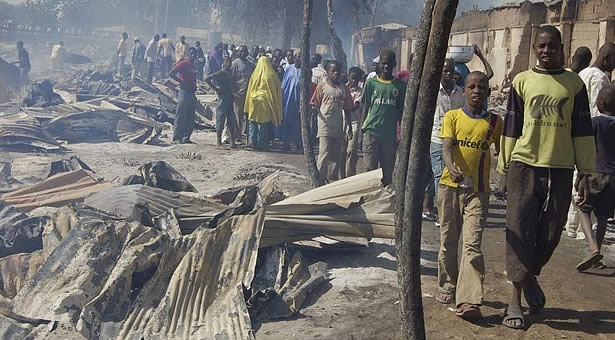Since independence, Nigeria’s social-economic development is greatly affected by corruption and insecurity. During the first republic, political violence was rife, especially in the western region, corrupt practices were so pronounced as well, and all these led to the military intervention in 1966.
It is pretty impossible to tell Nigeria’s story after independence without a mention of corruption, courtesy of the predatory elites who see politics as an avenue to satisfy their urge for primitive accumulation of wealth. Such practice has reduced politics to a do or die affair, and the result is nothing but violence and insecurity.
As noted by a political scientist, the “Nigerian State is a victim of high-level corruption, bad governance, political instability and a cyclical legitimacy crisis. Consequently, national development is retarded, and the political environment uncertain’’.
Politicians often see their political opponents as enemies, making a mere ideological difference an enmity and thus recruiting thugs to unleash violence on perceived opponents. Even politicians who are members of the same political party also involve in violence during primary elections and other party activities to intimidate perceived formidable aspirants. All this, basically to win elections and siphon public funds.
It is no doubt that the significant problems that have continued to hinder social and economic progress in the country today are corruption and insecurity of lives and property. In 2020, transparency international ranked Nigeria 146 out of 180 countries in the World Corruption Perception Index, making Nigeria the second most corrupt country in West Africa. Besides, according to the institute for economics and peace‟s global peace index, Nigeria is considered one of the most dangerous countries in the world.
Evidently, corruption and insecurity are the significant challenges Nigeria must overcome immediately. Thus, leaving out the social and economic consequences of insecurity and corruption in any analysis of Nigeria’s underdevelopment would hinder a full revelation of the country’s challenges. Public officials in Nigeria have continued to loot the nation’s treasury as the public system lack proper accountability structure and credibility, which, overtime serve as the bedrock for insecurity to thrive.
This is because Nigeria’s underdevelopment is better understood by a critical analysis of the sociological factors that affect the nation’s micro-economic underperformance and findings have evidently revealed that corruption and insecurity serve as basic impediment to Nigeria’s development.
According to a world bank report on Nigeria’s development, development is identified with regards social dimensions such as security of lives and properties, overall wellbeing and political participation.
Even though the social condition of Nigerians may differ, the government still needs to concentrate its efforts towards battling the right problems. Winning a tangible victory against poverty and other socioeconomic issues requires defeating the twin-evils of corruption and insecurity first.
